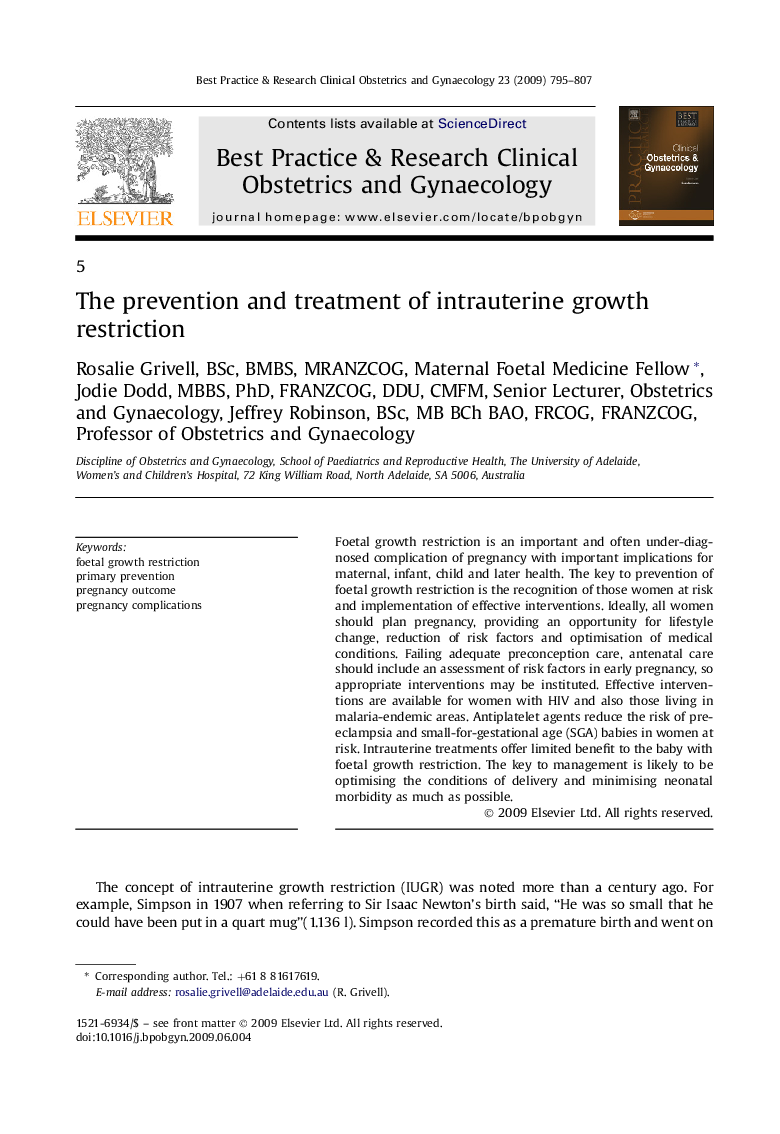| Article ID | Journal | Published Year | Pages | File Type |
|---|---|---|---|---|
| 3907390 | Best Practice & Research Clinical Obstetrics & Gynaecology | 2009 | 13 Pages |
Foetal growth restriction is an important and often under-diagnosed complication of pregnancy with important implications for maternal, infant, child and later health. The key to prevention of foetal growth restriction is the recognition of those women at risk and implementation of effective interventions. Ideally, all women should plan pregnancy, providing an opportunity for lifestyle change, reduction of risk factors and optimisation of medical conditions. Failing adequate preconception care, antenatal care should include an assessment of risk factors in early pregnancy, so appropriate interventions may be instituted. Effective interventions are available for women with HIV and also those living in malaria-endemic areas. Antiplatelet agents reduce the risk of pre-eclampsia and small-for-gestational age (SGA) babies in women at risk. Intrauterine treatments offer limited benefit to the baby with foetal growth restriction. The key to management is likely to be optimising the conditions of delivery and minimising neonatal morbidity as much as possible.
